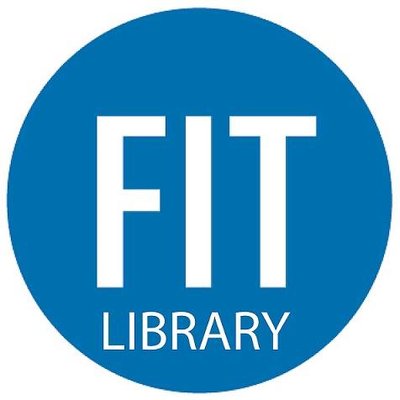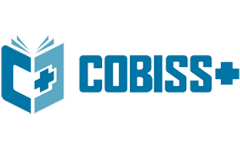The Implementation of Rural Tourism Development Policy at Kampung Adat Cireundeu
DOI:
https://doi.org/10.61841/mh202798Keywords:
Policy Implementation, Rural Tourism Development, Local WisdomAbstract
Adat village, as a nation's asset, can be developed as a tourism potential that nurtures from local wisdom. Its development depends on dynamic dimension growth that attracts domestic and international tourists. The development management of rural tourism, with a particular and intense local wisdom, must be maintained by qualified human resources that are capable of regulating local wisdom with information technology development. Therefore, this research aims to analyze and comprehend the rural tourism development’s policy implementation at Kampung Adat Cireundeu. The impediment factor and subsidiary factors, as well as the chairman of the culture, tourism, youth, and sports department, effort in rural tourism policy implementation. This research used the qualitative method. Thus, data were obtained through participant observation, in-depth interviews, and documentation. The Miles and Huberman model is used as a data analysis technique. This research concludes that policy implementation of rural tourism at Kampung Adat Cireundeu has several impediment factors, such as the constraints of infrastructure development, undeveloped tourism attractions packages, and networking cooperation. The subsidiary factors are not well managed. But not to eliminate the efforts on overcoming the barriers in policy implementation that apprehend the development of rural tourism that is advanced at the moment.
Downloads
References
[1] D. Purwanggono, "Tourism Village Concept," Indonesian Journal of Travel, 4, pp. 1-8, 2009.
[2] H. Werf, Manajemen Ilmu Pemerintahan, Jakarta, 1997.
[3] Sugiyono, Metode Penelitian Kuantitatif, Kualitatif Dan Kombinasi (Mixed Methods) / Sugiyono, Bandung:
Alfa-beta, 2013.
[4] S. M. Abdullah, Perkembangan Studi Implementasi, Jakarta: Lembaga Administrasi Negara RI, 1988.
[5] S. A. Wahab, Analisis Kebijakan: Dari Formulasi Ke Implementasi Kebijakan Negara Edisi Kedua, Jakarta:
Bumi Aksara, 2008.
[6] L. Agustinus, Dasar-dasar Kebijakan Publik, Bandung: Alfabeta, 2012.
[7] R. Bintarto, Interaksi Desa-Kota dan Permasalahannya, Yogyakarta: Ghalia Indonesia, 1989.
[8] C. O. Jones, Introduction to The Study of Public Policy, 4th Edition, California-US: Harcourt College
Publications, 2001.
[9] M. B. Miles, A. M. Huberman, and J. Saldana, Qualitative Data Analysis, CA-US: SAGE Publication, 2014.
[10] I. Nawawi, Perilaku Administrasi Kajian Teori dan Pengantar Praktik, Surabaya: ITS Press, 2009.
[11] A. Subarsono, Analisis Kebijakan Publik, Konsep, Teori dan Aplikasi, Bandung: Sinar Baru Algensindo, 2006.
[12] N. Usman, Konteks Implementasi Berbasis Kurikulum, Jakarta: PT. Raja Grafindo Persada, 2004.
[13] B. Winarno, Teori dan Proses Kebijakan Publik, Yogyakarta: Media Pressindo, 2002.
[14] N. K. &. L. Y. S. Denzin, The SAGE handbook of qualitative research (4th ed.), Thousand Oaks, CA: Sage,
2011.
[15] J. W. Creswell, Research Design: Qualitative, Quantitative, and Mixed Methods Approaches, California, US:
SAGE Publication, 2014.
[16] N. K. R. Indonesia, Peraturan Daerah Kota Cimahi Nomor 1 Tahun 2015, Tentang Rencana Induk Pembangunan
Kepariwisataan Daerah Kota Cimahi., Cimahi: Pemerintah Daerah, 2015.
[17] N. K. R. Indonesia, Peraturan Daerah Kota Cimahi Nomor 1 Tahun 2015, Bab IV Pasal 22 Tentang Prinsip dan
Pendekatan Pembangunan Kawasan Pariwisata Kreatif., Cimahi: Pemerintah Daerah Kota, 2015.
[18] Nasution, Metode Penelitian Naturalistik Kualitatif, Bandung: Penerbit Tarsito, 1992.
[19] L. J. Moleong, Metodologi Penelitian Kualitatif, Bandung: Penerbit PT Remaja Rosdakarya Offset, 2007.
[20] R. Indonesia, Peraturan Wali Kota Cimahi Nomor 33 Tahun 2016 tentang Kedudukan, Susunan Organisasi,
Tugas dan Fungsi Serta Tata Kerja Perangkat Daerah Kota Cimahi, Cimahi: Walikota, 2016.
Downloads
Published
Issue
Section
License
Copyright (c) 2020 AUTHOR

This work is licensed under a Creative Commons Attribution 4.0 International License.
You are free to:
- Share — copy and redistribute the material in any medium or format for any purpose, even commercially.
- Adapt — remix, transform, and build upon the material for any purpose, even commercially.
- The licensor cannot revoke these freedoms as long as you follow the license terms.
Under the following terms:
- Attribution — You must give appropriate credit , provide a link to the license, and indicate if changes were made . You may do so in any reasonable manner, but not in any way that suggests the licensor endorses you or your use.
- No additional restrictions — You may not apply legal terms or technological measures that legally restrict others from doing anything the license permits.
Notices:
You do not have to comply with the license for elements of the material in the public domain or where your use is permitted by an applicable exception or limitation .
No warranties are given. The license may not give you all of the permissions necessary for your intended use. For example, other rights such as publicity, privacy, or moral rights may limit how you use the material.
















